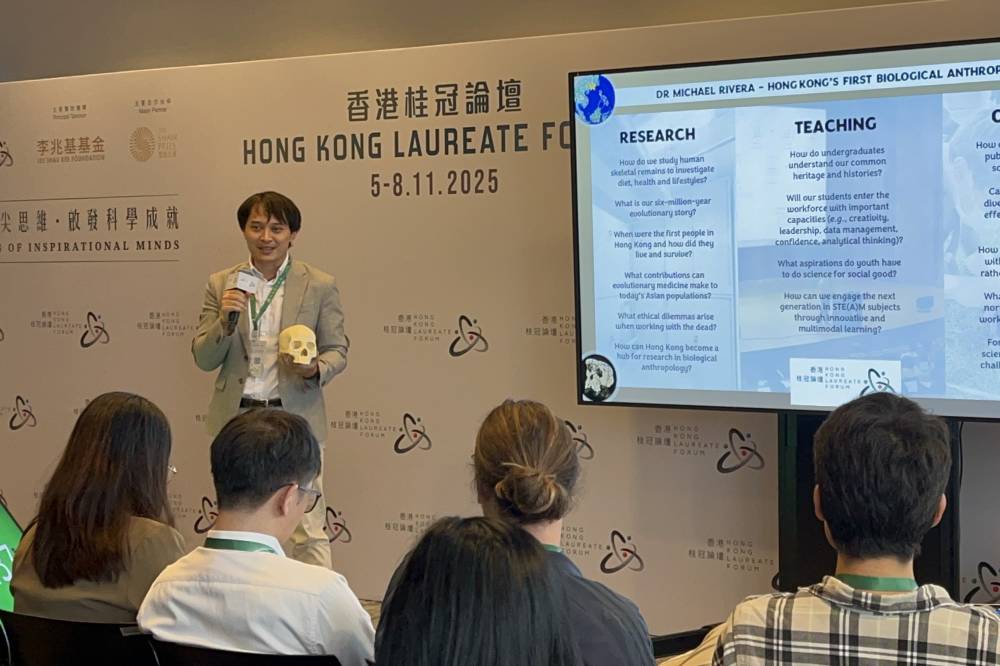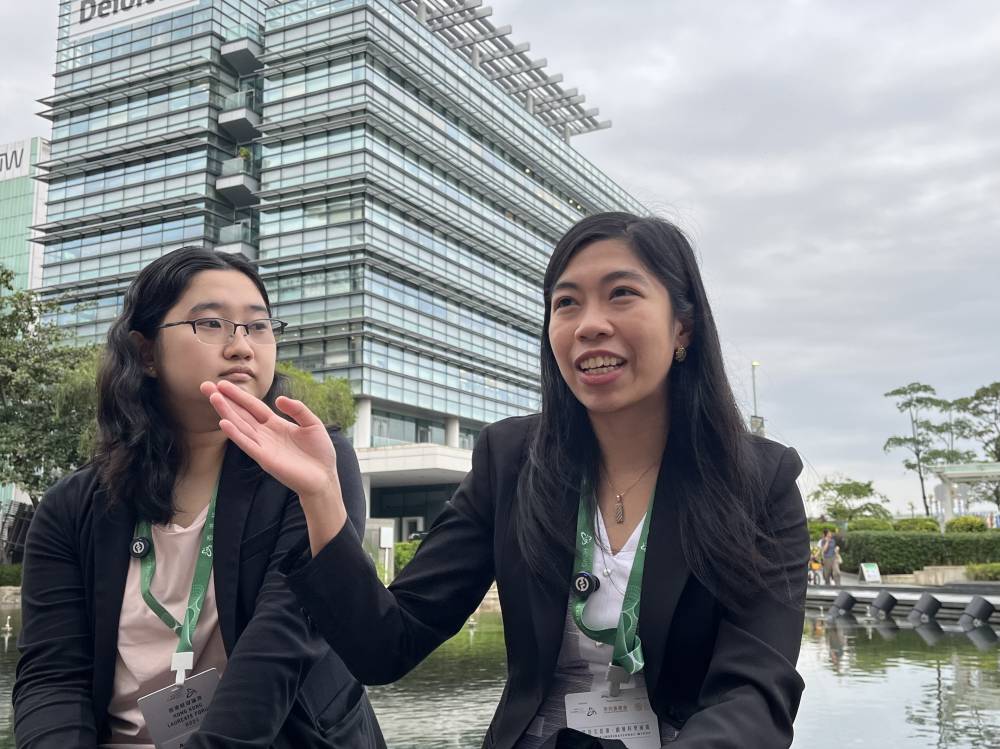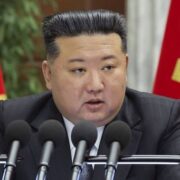PH scientists tackle life’s mystery at Hong Kong science meet

HONG KONG—Where do we come from, and what makes us human? Could the same nanomaterials found in plants, car tires, and cosmetics created to make life easier also pose hidden dangers?
These are just some of the big questions that Filipino scientists based in Hong Kong are trying to answer, as they presented their latest research to more than 200 fellow scientists from around the world at an international gathering last week.
Holding a skull as a prop, Chinese-Filipino bioanthropologist Michael Rivera gave a three-minute flash presentation at the Hong Kong Laureate Forum (HKLF) on Nov. 6, summarizing his work on human evolution as the first-ever biological anthropologist in the special administrative region of China.
“I study why it is we walk on two legs, developed big brains, have the capacity for language and arts and to cook our food,” he told his peers.
Born and raised in Hong Kong to a Filipino father and Chinese mother, Rivera said he combines science and biology with history, social sciences and the arts to study human evolution in Asia.
“I mainly do that through studying lots of fossils and skeletons that are really old, and some of my other colleagues will then look at other forms of evidence like stone tools or environmental data,” he told a group of Filipino reporters on the sidelines of the forum at the Hong Kong Science and Technology Park.
Mentor to students
Rivera, together with Sheena Garcia of the Hong Kong University of Science and Technology and sophomore Ayisha Ong of the Hong Kong Polytechnic University, were among the Filipino participants in the gathering, which also brought together 12 distinguished scientists in astronomy, life science and medicine, and mathematical sciences to share knowledge and foster collaboration with young scientists from more than 20 countries.
Also part of the Filipino cohort was Angelo Velasco, who holds a master’s degree in satellite data and is currently working for the Philippine Space Agency.
In his 15 years in the field, Rivera said he takes pride in the privilege of mentoring students from the University of Hong Kong.
“I’ve taken a hundred different students to learn with me in the lab. Each of them has different reactions, so they might have an emotional reaction [when they see skeletal bones, for example, or] they might be curious or excited to learn. They might also be scared of [examining] the dead,” he said.
Rivera said some students feel nervous or anxious as older bones might remind them of people they’ve lost, while bones closer to their own age could evoke emotions “as if they were just looking at themselves or their best friends or sisters on the table.”
“And for all these different reasons, I think I’m very proud of the fact that I don’t only teach them scientific content but I work with them through their emotions,” he said.
“What we’re talking about is actually we need safe spaces in society to confront death and to talk about health and disease. And if we have those difficult emotions, I hope that more scientists will allow students to feel supported in exploring those themes,” he added.

Bioinformatics
Rivera has never lived in the Philippines, his father’s home country, but he describes himself as a mentor of sorts to his Filipino peers there.
“Sometimes [my colleagues and I] work on our papers together [online]—for example, my friends who work in forensic anthropology in the Philippines or those who work in bioarchaeology and look at really old remains. I train them on how to look at health and disease, or reconstruct ancient lifestyles in this way,” he said.
Ong is just at the start of her scientific journey as an undergraduate student studying macromolecules and how programming can be used to better understand how these molecules work in the body.
“For now, I’m currently doing research for bioinformatics, which is kind of like computer science and biology. So we use computer technology to study different aspects of biology,” Ong said.
Nanoparticles’ effects
She hopes to continue her research in the field and, if all goes well, pursue postgraduate studies—like her fellow Filipino participant Sheena Garcia, who at 29 is already a postdoctoral fellow focusing on nanoparticle toxicology.
Nanoparticles are extremely tiny particles, around 100 micrometers small, that can only be seen using a transmission electron microscope, Garcia said.
While there has been extensive research on the applications of nanoparticles in biomedicine and other industries, Garcia and her team are also studying their possible harmful effects.
“We have discovered that some silicon nanoparticles can actually damage the brain, the liver, and the kidney through these studies,” she said.
Garcia earned her undergraduate degree in chemistry from the Ateneo de Manila University in 2017 before pursuing further studies in Hong Kong.
Although she now lives and works there, she remains connected to the Philippines through Junior Achievement Inc., a nonprofit organization mentoring high school students.
“In that way, I feel like I could at least share my knowledge. These kinds of experiences, these conferences, I share with them what I learned,” she said of the forum.
The four-day event, held from Nov. 5 to Nov. 8 and organized by the Council of the HKLF with full sponsorship from the Lee Shau Kee Foundation, convened some of the biggest names in science, including astrophysicist and 2020 Nobel laureate Reinhard Genzel, to engage with young and emerging scientists.
Timothy Tong Wai-cheung, chair of HKLF, said the high-level gathering was intended to encourage the younger generation to take an interest in science and “hopefully become scientists in the future.”

















